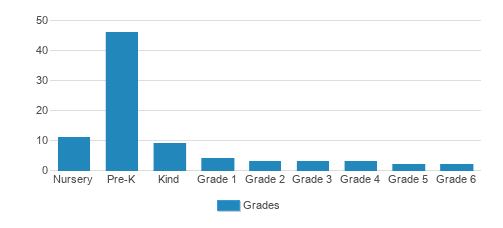Crossroads Center for Children serves children with a diagnosis within the Autism spectrum, along with peers with no disability, and their families.
Our goal is to enhance all children's lives by teaching the necessary skills for them to participate in a meaningful way in their home, school, and community.
Crossroads Center for Children utilizes Applied Behavior Analysis (ABA) as the treatment philosophy and approach to autism intervention.
Noted as one of the only methods for which empirical research has validated success, procedures based on ABA are used to increase skills across all areas of development.
The school provides a continuum of services across intensity and level of integration, resulting in the most effective mix of services to meet the individual needs of the child.
Services range from group instruction to individual therapy. These services can be provided in a variety of settings, ranging from segregated to fully-integrated classrooms.
Quick Stats (2025)
- School Type: School with Special Program Emphasis
- Grades: Nursery/Preschool-4
- Enrollment: 83 students
- Average class size: 7 students
- Application Deadline: None / Rolling
- Source: Verified school update
School Overview
School Type
Religious Affiliation
Grades Offered
Grades Nursery/Preschool-4
Year Founded
1998
Summer School Offered
Yes
School Calendar
Student Body
Total Students
83 students
Student Body Type
Co-ed
% Students of Color
30%
State avg.: 40%
Students by Grade

Academics and Faculty
Total Classroom Teachers
50 teachers
Student : Teacher Ratio
2:1
National avg.: 13:1
% Faculty w/Advanced Degree
20%
Average Class Size
7 students
Classroom Dress Code
Casual
Tuition and Acceptance Rate
Admission Deadline
None / Rolling
Admissions Associate
Melissa Cleinman
School Notes
- Crossroads Center for Children serves children with a diagnosis within the Autism spectrum, and their families.
- Our goal is to enhance all children's lives by teaching the necessary skills for them to participate in a meaningful way in their home, school, and community.
- Crossroads Center for Children utilizes Applied Behavior Analysis (ABA) as the treatment philosophy and approach to autism intervention.
- Noted as the only method for which empirical research has validated success, procedures based on ABA are used to increase skills across all areas of development.
- The school provides a continuum of services across intensity and level of integration, resulting in the most effective mix of services to meet the individual needs of the child.
- Services range from group instruction to individual therapy.
- These services can be provided in a variety of settings, ranging from segregated to fully-integrated classrooms.
Source: Verified school update
Frequently Asked Questions
When is the application deadline for Crossroads Center For Children?
The application deadline for Crossroads Center For Children is rolling (applications are reviewed as they are received year-round).
School Reviews
Endorse Crossroads Center For Children. Endorsements should be a few sentences in length. Please include any comments on:
- Quality of academic programs, teachers, and facilities
- Availability of music, art, sports and other extracurricular activities
- Academic or athletic awards
Recent Articles

A Parent's Guide To Understanding High School Teaching Methods
This comprehensive guide helps parents navigate the various teaching methods used in today's high school classrooms. By understanding these approaches, you'll be better equipped to support your teen's learning journey, communicate effectively with teachers, and create a complementary learning environment at home.

Pre-AP, PSAT/NMSQT, BlueBook, and More
This article explains the College Board's programs designed to prepare middle and high school students for the SAT. It covers Pre-AP courses, and the PSAT Suite of Assessments, highlighting how these programs use technology to enhance learning.

Independent Schools in Africa
Discover Africa's vibrant international education landscape with our comprehensive guide to private K-12 schools across the continent. From British and American curricula to French, German, and niche language programs, explore how expat families can find world-class education tailored to their needs. Learn about boarding and day schools in South Africa, Tunisia, Morocco, Egypt, and beyond.




















